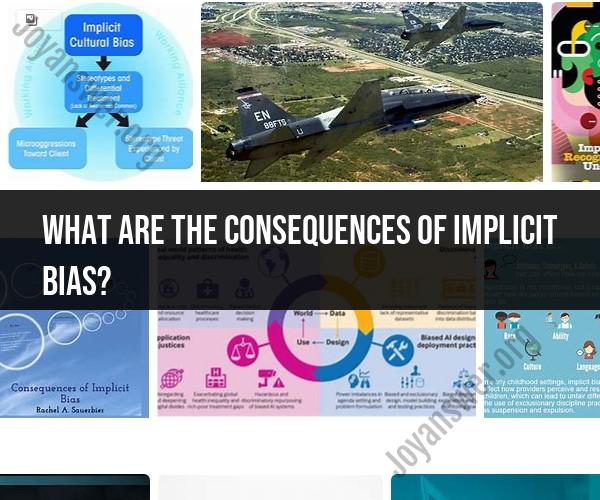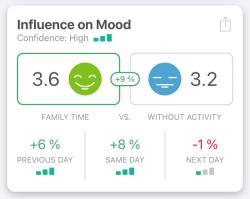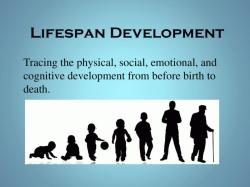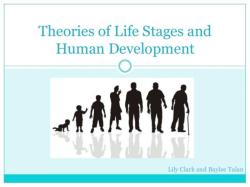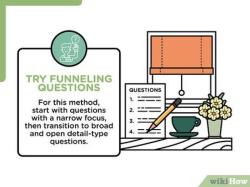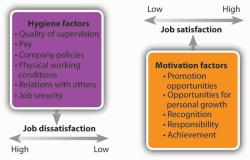What are the consequences of implicit bias?
Implicit bias can have significant and far-reaching consequences, both at the individual and societal levels. These biases, which operate unconsciously, can influence our attitudes, decisions, and behaviors in subtle but impactful ways. Here are some of the consequences of implicit bias:
Unconscious Discrimination: Implicit bias can lead individuals to unconsciously discriminate against others based on factors such as race, gender, age, or other characteristics. This discrimination can manifest in hiring decisions, promotions, educational opportunities, and access to various services.
Inequities and Disparities: Implicit bias can contribute to disparities in areas such as education, healthcare, criminal justice, and employment. It can result in unequal treatment, opportunities, and outcomes for different groups, perpetuating systemic inequities.
Microaggressions: Implicit bias can lead to microaggressions, which are subtle, often unintentional, and frequently indirect expressions of bias or stereotypes. These microaggressions can harm individuals by undermining their self-esteem, sense of belonging, and well-being.
Reduced Diversity and Inclusion: Implicit bias can create a hostile or unwelcoming environment for individuals from underrepresented groups. This can hinder diversity and inclusion efforts within organizations and communities.
Negative Stereotyping: Implicit bias can reinforce negative stereotypes about certain groups, leading to a cycle of bias confirmation. People may interpret ambiguous information in a way that aligns with their implicit biases, reinforcing those biases over time.
Biased Decision-Making: Implicit bias can influence decision-making in various contexts, including criminal justice, healthcare, and education. Biased decisions can result in unfair treatment, misdiagnoses, and disparities in sentencing.
Undermined Trust: Implicit bias can erode trust within communities and institutions. When people perceive bias in decision-making processes, they may lose trust in those systems, making it more difficult to achieve cooperation and social cohesion.
Impact on Mental and Physical Health: Experiencing bias and discrimination can have detrimental effects on an individual's mental and physical health. It can lead to stress, anxiety, depression, and even physical health problems.
Barriers to Personal Growth: Implicit bias can limit personal and professional growth opportunities for individuals who are targets of bias. It can discourage people from pursuing their goals and aspirations.
Lack of Accountability: Because implicit bias operates at the unconscious level, individuals may not be aware of their biases. This lack of awareness can make it challenging to hold people accountable for biased behaviors and decisions.
Recognizing and addressing implicit bias is crucial to mitigating its negative consequences. This includes promoting awareness, providing bias training and education, implementing fair policies and practices, and fostering inclusive environments where diversity is valued and respected. Additionally, it's essential for individuals to engage in self-reflection and self-awareness to identify and counter their own implicit biases. By actively working to reduce implicit bias, we can contribute to a fairer and more equitable society.
The Impact of Implicit Bias: Recognizing its Consequences
Implicit bias is a type of bias that occurs automatically and unintentionally. It is influenced by our experiences, our environment, and our culture. Implicit bias can have a significant impact on our lives, both personally and professionally.
Here are some of the consequences of implicit bias:
- Discrimination: Implicit bias can lead to discrimination against certain groups of people. For example, implicit bias in hiring can lead to employers passing over qualified candidates because of their race, gender, or other characteristics.
- Stereotypes: Implicit bias can reinforce stereotypes about certain groups of people. For example, implicit bias about race can lead to people believing that certain racial groups are less intelligent or more violent than others.
- Inequality: Implicit bias can contribute to inequality in society. For example, implicit bias in the criminal justice system can lead to people of color being more likely to be arrested, convicted, and sentenced to harsher punishments.
Implicit Bias in Society: Unpacking the Effects
Implicit bias can have a negative impact on people in all aspects of their lives. For example, implicit bias can affect:
- Education: Implicit bias in education can lead to students of color being less likely to be placed in gifted and talented programs, being disciplined more harshly, and being given lower grades for the same work as their white peers.
- Employment: Implicit bias in employment can lead to people of color being less likely to be hired, promoted, and paid the same as their white peers.
- Healthcare: Implicit bias in healthcare can lead to people of color being less likely to receive quality healthcare, being misdiagnosed, and being prescribed less effective treatments.
- Criminal justice: Implicit bias in the criminal justice system can lead to people of color being more likely to be arrested, convicted, and sentenced to harsher punishments.
Implicit Bias Awareness: Navigating the Ramifications
It is important to be aware of implicit bias so that we can take steps to mitigate its negative effects. Here are some tips:
- Educate yourself about implicit bias. The more you know about implicit bias, the better equipped you will be to recognize it and to challenge it.
- Be mindful of your own biases. We all have implicit biases, but it is important to be aware of them so that we can avoid letting them influence our behavior.
- Challenge biases when you see them. If you see someone else behaving in a biased way, challenge them. This will help to raise awareness of implicit bias and to create a more inclusive environment.
We all have a role to play in reducing the negative impact of implicit bias. By educating ourselves, being mindful of our own biases, and challenging biases when we see them, we can create a more just and equitable society.
